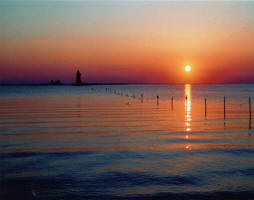 Palestine: West Bank water worries
Palestine: West Bank water worries
The worst place to be in the West Bank in terms of water and sanitation facilities is an Israeli-controlled stretch of land known as Area C, where the Palestinian Authority (PA) is technically responsible for water services, but simply unable to deliver.
Cara Flowers, an officer with the Emergency Water, Sanitation and Hygiene Group (EWASH), said the health and livelihoods of communities living in Area C - covering 60 percent of land in the West Bank and home to some 60,000 of the West Bank’s 2.3 million people - were hardest hit as they have a severe lack of access to water and sanitation infrastructure.
She said EWASH was struggling to implement emergency humanitarian water projects in Area C as it lacked the necessary permits from the Israeli authorities.
The 1995 Israeli-Palestinian Interim Agreement on the West Bank and Gaza Strip (also known as Oslo II) categorized land in the West Bank into areas A, B and C.
According to the agreement, Area A is under the control of the Palestinian Authority (PA) and Area B under the joint control of Israel and the PA. About 95 percent of the Palestinian population live in these two areas, though they make up only 40 percent of the land area.
In Area C, Israel has retained full control over security and while responsibility for the provision of services falls to the PA, according to EWASH.
But the Palestinian Water Authority says it has very limited control over water resources in the West Bank.
Rights body Amnesty International accuses Israel of denying Palestinians the right to access sufficient water supplies in the West Bank by maintaining total control over the shared water resources and preventing the development of adequate water infrastructure there.
The Mountain Aquifer is the only source of water for Palestinians in the West Bank, but one of several for Israel, which also has sole access to water available from the Jordan river.
Israel says it has responded to the needs of the Palestinians and has increased the quantity of water provided to them far beyond that specified in the Interim Agreement.
Meanwhile, the West Bank’s water crisis is worsening, according to a March 2010 report by EWASH. Only 31 percent of communities in the West Bank are connected to a sewage network, it said.
| Contact information | n/a |
|---|---|
| News type | Inbrief |
| File link |
http://www.irinnews.org/Report.aspx?ReportId=89843 |
| Source of information | IRIN news |
| Subject(s) | DRINKING WATER , DRINKING WATER AND SANITATION : COMMON PROCESSES OF PURIFICATION AND TREATMENT , HEALTH - HYGIENE - PATHOGENIC MICROORGANISM , HYDRAULICS - HYDROLOGY , INFRASTRUCTURES , POLICY-WATER POLICY AND WATER MANAGEMENT , PREVENTION AND NUISANCES POLLUTION , RIGHT , RISKS AND CLIMATOLOGY , SANITATION -STRICT PURIFICATION PROCESSES , SLUDGES , WATER DEMAND , WATER QUALITY |
| Relation | http://www.emwis.net/countries/fol749974/country608613 |
| Geographical coverage | Palestine, Israel, |
| News date | 23/07/2010 |
| Working language(s) | ENGLISH |
 you are not logged in
you are not logged in





